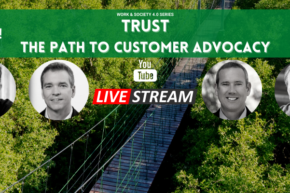For entrepreneurs, a successful business isn’t just a source of income—it’s a testament to years of hard work, risk, and vision. But as your company grows, so too does your financial complexity, making you a prime target for a specific, and often devastating, form of financial crime: investment advisor fraud.
In a recent interview, John Golden sat down with Timothy Smith, founder and CEO of Aurora Private Wealth. With over 40 years of experience in financial planning and investment advisory, Timothy shared crucial insights on how to spot and avoid these sophisticated scams.
This guide distills the most valuable takeaways from that conversation, providing you with actionable, real-world strategies to protect your hard-earned assets and financial future.
What Exactly Is Investment Advisor Fraud?
At its core, investment advisor fraud is a betrayal of trust. It happens when an individual, who may or may not be a registered advisor, convinces you to hand over your money with the promise of growth, only to misuse or steal those funds for their own benefit.
Common schemes to watch out for include:
- Ponzi Schemes: This classic fraud uses money from new investors to pay “returns” to earlier ones, creating a false sense of a thriving, legitimate business.
- Misappropriation of Funds: The advisor diverts your money into their personal accounts to fund a lavish lifestyle or unauthorized purchases.
- Fake Account Statements: To keep you in the dark, they provide you with fabricated reports showing balances and returns that don’t actually exist.
- Off-Platform Investments: A major red flag. This involves convincing you to move funds from well-known, regulated custodians (like Schwab, Fidelity, or UBS) into a private investment vehicle controlled by the advisor, making it far easier to siphon funds.
Watch for These Red Flags:
- Guaranteed, High Returns: Legitimate investments always carry risk. If an advisor promises high, guaranteed returns, especially with little or no risk, run the other way.
- Pressure to Act: Fraudsters often create a sense of urgency, pressuring you to move money quickly before you have a chance to conduct proper due diligence.
- Lack of Transparency: You should always know exactly where your money is held. If an advisor is cagey or unwilling to provide clear answers, that’s a serious problem.
- Unregistered Status: Always verify their credentials. If they are not registered with a regulatory body like FINRA or have a history of complaints, it’s a deal-breaker.
Seven Steps to Protect Your Business and Yourself
Your best defense against fraud is a combination of skepticism and a clear, defined process for vetting anyone you trust with your money.
1. Lean on Referrals, but Always Do Your Homework
- Why It Works: Fraudsters often rely on social engineering and a manufactured sense of trust. A referral from a trusted friend or colleague is a good starting point, but it’s only the beginning.
- Actionable Tip: Don’t just ask for a name. Ask about the advisor’s character, their ethical track record, and how transparent they are. As Timothy Smith puts it, “Character is as important as competence.”
2. Leverage FINRA’s BrokerCheck — It’s Free and Essential
- Why It Works: FINRA’s BrokerCheck is a robust, public database that lets you verify an advisor’s professional history, licenses, and any disciplinary actions.
- Actionable Tip: Go to FINRA BrokerCheck, type in their name, and review the full report. Pay close attention to any complaints, regulatory actions, or gaps in their registration. An advisor not listed here may be operating illegally.
3. Never Move Money Off Reputable Platforms Without Rigorous Scrutiny
- Why It Works: Reputable custodians like Merrill Lynch or Fidelity have strict safeguards in place to protect your funds. Asking you to move money off these platforms is a classic tactic for misappropriation.
- Actionable Tip: Question every single request to transfer funds to a private account or investment. Demand documented proof, including audited financial statements and proof of regulatory filings, for any private opportunity. Timothy’s golden rule here is simple: “Never take your money off a reputable platform unless you’ve done serious due diligence.”
4. Implement Strong Financial Controls
- Why It Works: Fraud thrives in environments with little to no oversight. If a single person has unchecked control over your business’s finances, you’re creating an opportunity for them.
- Actionable Tip: Put a system of checks and balances in place. For any large transaction (say, over $10,000), require dual signatures from two authorized individuals. Also, insist on regular, independent audits of any business or investment you’re involved in.
5. Act Decisively if You Suspect Something Is Wrong
- Why It Works: The longer you wait, the more money you stand to lose. Many entrepreneurs delay action out of embarrassment, but a quick response can save you from further harm.
- Actionable Tip: If something feels off, don’t hesitate. Contact the supervisory office of the advisor’s firm, and if you’re certain fraud has occurred, notify law enforcement immediately. Get professional help from a lawyer or accountant to guide you through the next steps.
6. Don’t Be Afraid to Get a Second Opinion
- Why It Works: Entrepreneurs are experts in their own field, not necessarily in complex financial investments. Relying on an external network of professionals can help you spot red flags you might otherwise miss.
- Actionable Tip: Engage a third-party accountant or a lawyer to review investment materials, contracts, and financial statements. Their professional skepticism is a valuable safeguard, even if they err on the side of caution.
7. Stay Vigilant Against Tech-Driven Scams
- Why It Works: Cybercriminals are increasingly using AI and sophisticated phishing tactics to impersonate trusted sources and steal sensitive information.
- Actionable Tip: Use strong passwords and two-factor authentication on all your financial accounts. Be hyper-aware of phishing attempts, and always verify “too good to be true” opportunities, especially those involving trendy sectors like crypto or AI, with independent research.
The Big Picture: A Cautionary Tale
Timothy Smith shared a powerful real-world example: an advisor who recommended an investment without disclosing her own financial stake in the company. When the business began to fail, she pressured her clients to invest more, hoping to save her own investment. Meanwhile, the company’s CEO was secretly siphoning off funds. The entire scheme unraveled because of a lack of independent audits and financial oversight.
The lesson? Even in a seemingly legitimate business, a lack of transparency and proper controls is an invitation for disaster.
Your Path Forward: Key Takeaways
Your success as an entrepreneur is a source of pride—don’t let a fraudster take it from you. Remember these core principles:
- Trust, but Always Verify: No matter who refers an advisor to you, perform your own due diligence.
- Use the Right Tools: BrokerCheck is your first stop.
- Stay on Reputable Platforms: Moving money off-platform is a significant risk.
- Demand Transparency: Insist on clear financial controls, audits, and dual authorizations.
- Trust Your Gut: If something feels wrong, investigate it immediately.
- Leverage Your Network: A professional’s second opinion is worth its weight in gold.
- Be Cyber-Aware: The digital world is full of new threats—protect yourself accordingly.
As Timothy Smith’s upcoming book, 50 Ways to Avoid Investment Adviser Fraud, will further explore, the key is never to assume and always verify.
Your financial future is too important to leave to chance. Stay informed, stay protected, and remember that when it comes to your money, a healthy dose of skepticism is a virtue.
Our Host
John is the Amazon bestselling author of Winning the Battle for Sales: Lessons on Closing Every Deal from the World’s Greatest Military Victories and Social Upheaval: How to Win at Social Selling. A globally acknowledged Sales & Marketing thought leader, speaker, and strategist, he has conducted over 1500 video interviews of thought leaders for Sales POP! online sales magazine & YouTube Channel and for audio podcast channels where Sales POP! is rated in the top 2% of most popular shows out of 3,320,580 podcasts globally, ranked by Listen Score. He is CSMO at Pipeliner CRM. In his spare time, John is an avid Martial Artist.








Comments